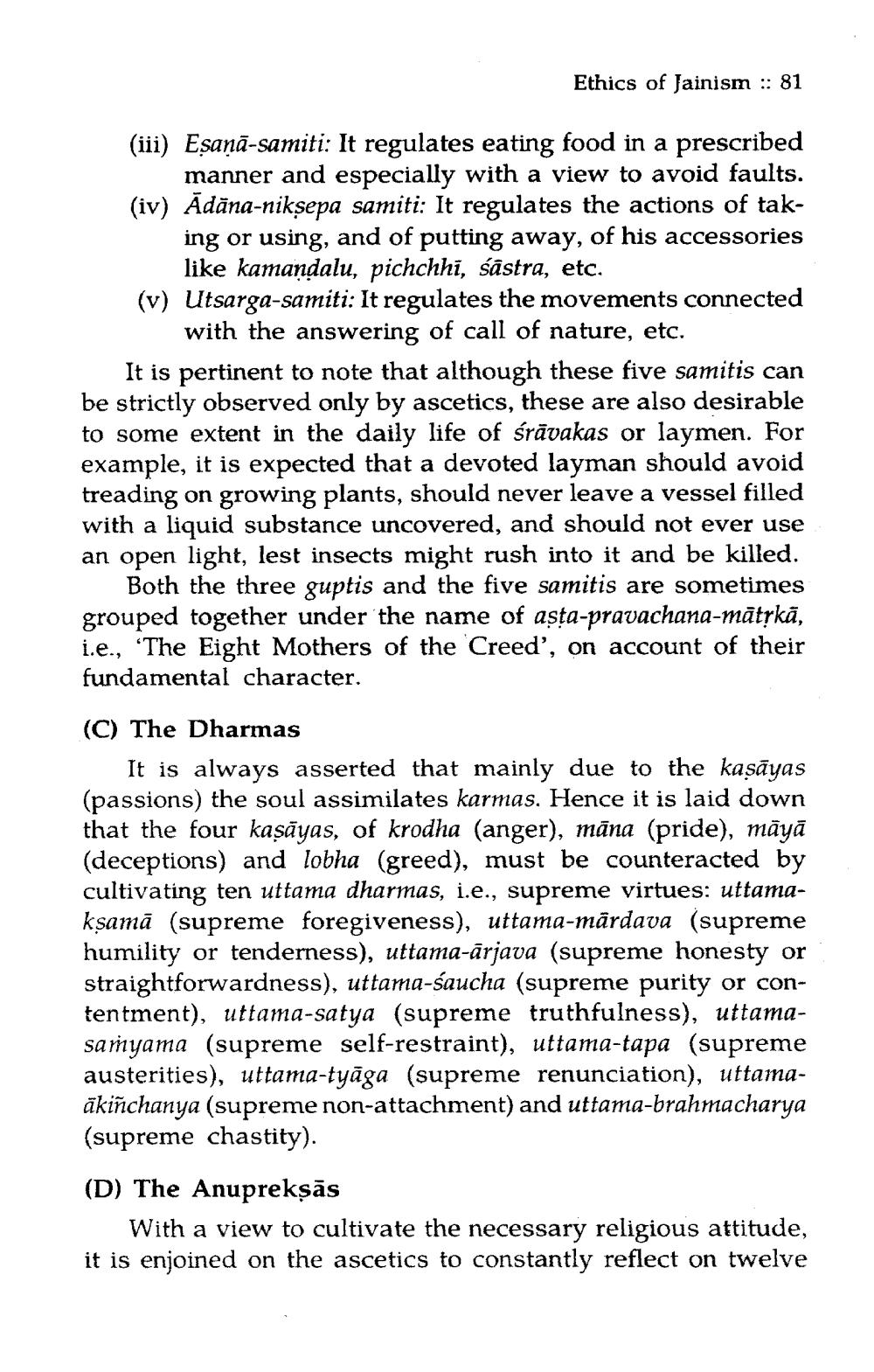________________
Ethics of Jainism :: 81
(iii) Esaņā-samiti: It regulates eating food in a prescribed
manner and especially with a view to avoid faults. (iv) Ādāna-niksepa samiti: It regulates the actions of tak
ing or using, and of putting away, of his accessories
like kamandalu, pichchhi, śāstra, etc. (v) Utsarga-samiti: It regulates the movements connected
with the answering of call of nature, etc. It is pertinent to note that although these five samitis can be strictly observed only by ascetics, these are also desirable to some extent in the daily life of śrāvakas or laymen. For example, it is expected that a devoted layman should avoid treading on growing plants, should never leave a vessel filled with a liquid substance uncovered, and should not ever use an open light, lest insects might rush into it and be killed.
Both the three guptis and the five samitis are sometimes grouped together under the name of asta-pravachana-mātņkā, i.e., 'The Eight Mothers of the Creed', on account of their fundamental character. (C) The Dharmas
It is always asserted that mainly due to the kasāyas (passions) the soul assimilates karmas. Hence it is laid down that the four kasāyas, of krodha (anger), māna (pride), māyā (deceptions) and lobha (greed), must be counteracted by cultivating ten uttama dharmas, i.e., supreme virtues: uttamakşamā (supreme foregiveness), uttama-mārdava (supreme humility or tenderness), uttama-ārjava (supreme honesty or straightforwardness), uttama-śaucha (supreme purity or contentment), uttama-satya (supreme truthfulness), uttamasamyama (supreme self-restraint), uttama-tapa (supreme austerities), uttama-tyāga (supreme renunciation), uttamaākiñchanya (supreme non-attachment) and uttama-brahmacharya (supreme chastity).
(D) The Anupreksās
With a view to cultivate the necessary religious attitude, it is enjoined on the ascetics to constantly reflect on twelve




